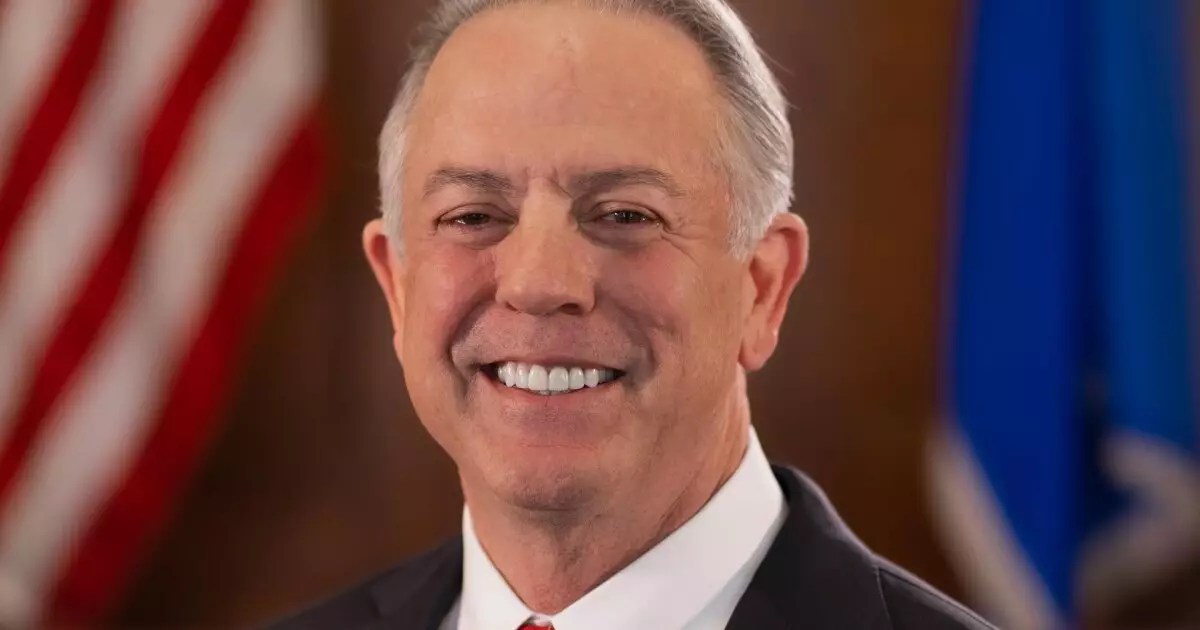As Nevada prepares for its legislative session, the state’s fiscal landscape appears fraught with challenges. Governor Joe Lombardo’s recent decision to appoint a new budget chief just days prior to the opening of legislative discussions has sparked a wave of scrutiny and concern. The state’s budgeting process is not just a technical exercise; it carries significant implications for education, healthcare, and overall governance. This article examines the recent developments in Nevada’s budgetary planning, the political dynamics at play, and the critical issues that lawmakers must address as they convene.
Governor Lombardo’s abrupt replacement of Amy Stephenson with Tiffany Greenameyer as the head of the Governor’s Office of Finance raises questions about the stability and strategic direction of Nevada’s fiscal policy. Greenameyer brings over two decades of experience in high-level fiscal roles, including her most recent position as deputy director for fiscal services within the Department of Health and Human Services. While her appointment could signal a desire for a fresh approach, the timing of this transition—immediately before a pivotal legislative session—suggests that the administration is scrambling to manage a challenging budget situation.
The backdrop of this change is Lombardo’s proposed $12.7 billion budget, which is under fire for being out of balance. Senate Majority Leader Nicole Cannizzaro has voiced alarm over the reported $335 million deficit embedded within the budget proposal. Her assertion that it is unprecedented for a governor to submit such a miscalculated budget underscores the fraught relationship between the Republican governor and a Democrat-controlled legislature. This division has significant ramifications for Nevada’s ability to enact a sound fiscal plan that adheres to the constitutional requirement for a balanced budget.
With the Democrats firmly in control of both houses of the Nevada legislature due to their victories in the November elections, Lombardo’s administration faces an uphill battle to garner bipartisan support for his agenda. The current political landscape is characterized by an ongoing tension between the governor’s proposed fiscal policies and the expectations of the Democratic majority. Cannizzaro’s concern regarding the overall coherence and viability of Lombardo’s budget reflects a broader apprehension about the governor’s strategic direction and long-term fiscal planning.
As lawmakers prepare to delve into budget negotiations, they are faced with the daunting task of addressing the myriad priorities laid out by Lombardo during his State of the State address. The governor’s proposal highlights teacher pay raises, healthcare agency restructuring, enhanced crime-fighting initiatives, and significant investment in housing solutions. Balancing these ambitious objectives with the realities of a budget shortfall and the necessity for fiscal responsibility will require nuanced negotiation and compromise.
Despite the immediate concerns surrounding Nevada’s proposed budget, there are sperpents of good news as well. The state has accumulated a reserve fund totaling $1.3 billion, which could be leveraged to address fiscal challenges in the coming biennium. Nevertheless, this buffer does not remedy the structural issues presented by Lombardo’s budget deficit. The implications of a compromise budget extend beyond mere numbers; they will impact essential services, education funding, and economic growth strategies critical to the state’s residents.
Lawmakers have until June 2 to reconcile differences and pass a budget that reflects the needs and priorities of all Nevadans. This process typically sets forth a multi-step approach, starting with K-12 education funding and extending to state agency financing and capital improvements. Each step carries its own complexities and necessitates collaboration amongst lawmakers to navigate the diverse interests represented within the legislature.
As Nevada’s legislative session unfolds, stakeholders will be closely watching how Governor Lombardo and the legislature navigate the numerous challenges ahead. The implications of these budgetary decisions will shape Nevada’s public services and economic vitality for years to come. This moment encapsulates the delicate interplay of leadership, accountability, and collaboration essential to guiding the state through its fiscal challenges. In this contentious environment, it remains to be seen whether Nevada can rise to the occasion and forge a budget that not only adheres to constitutional obligations but also meets the pressing needs of its populace.


Leave a Reply